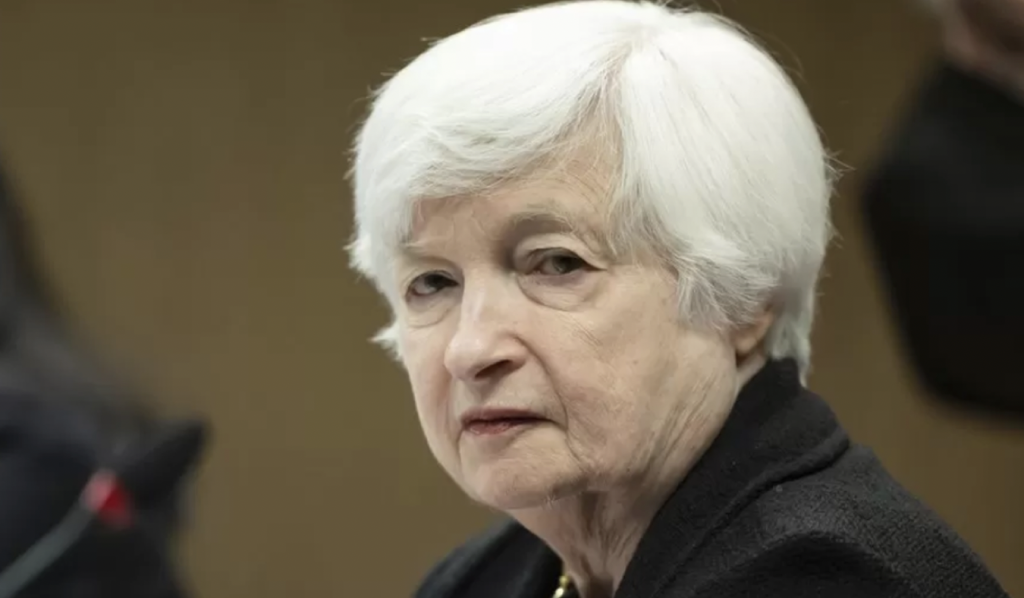One of the three main independent organisations that evaluate creditworthiness, Fitch, lowered the rating from the highest possible grade of AAA to AA+.
Over the past 20 years, Fitch claimed to have noticed a “steady deterioration” in governance.
Janet Yellen, the US Treasury Secretary, referred to the downgrade as “arbitrary”.
She claimed that it was based on “outdated data” from the years 2018 to 2020.
Credit ratings are a benchmark that investors use to determine how risky it is to lend money to a government. Because of its size and comparatively stable economy, the US is typically seen as a very safe investment.
But there was more political brinkmanship this year around borrowing from the government.
After a protracted political fight that threatened to lead the nation into default on its debts, the government finally succeeded in raising the debt ceiling to $31.4 trillion (£24.6 trillion) in June.
To avoid a government shutdown, lawmakers must try to agree on the budget for the following year by the end of September when Congress reconvenes from its summer break.
According to Fitch in a statement, “the rating downgrade of the United States reflects the expected fiscal deterioration over the next three years, a high and growing general government debt burden, and the erosion of governance” in comparison to peers.
Despite the bipartisan agreement in June to suspend the debt limit until January 2025, the rating agency claimed that standards of governance have been steadily declining over the past 20 years, notably in fiscal and financial problems.
Ms. Yellen declared that she “strongly” disapproved with Fitch’s choice.
In a statement, she said that Treasury securities “remain the world’s foremost safe and liquid asset, and… the American economy is fundamentally strong.”
Many economists were surprised by the downgrade’s timing and justification.
Larry Summers, a former US Treasury Secretary, called Fitch’s decision “bizarre and inept,” especially given that the US economy “looks stronger than expected,” in a post on Twitter, now known as X.
Allianz’s head economist Mohamed El-Erian called the Fitch announcement “a strange move” and described it as such.
He said on the social media site Threads, “This announcement is more likely to be ignored than have a long-lasting disruptive impact on the US economy and markets.”
The US will enter a moderate recession later this year, according to Fitch.
The biggest economic news of the past year, according to Nobel Prize-winning economist Paul Krugman, has been America’s astonishing success in bringing inflation down without a recession.
“The downgrade mainly reflects governance and medium-term fiscal challenges, but does not reflect new fiscal information,” said Alec Phillips, the senior US political economist at Wall Street bank Goldman Sachs.
The decision “should have little direct impact on financial markets as it is unlikely that there are major holders of Treasury securities who would be forced to sell based on the ratings change,” he continued.
Jason Furman, a former economic advisor to US president Barack Obama, was among those who questioned the timing of the Fitch statement. The man described it as “completely absurd.”












